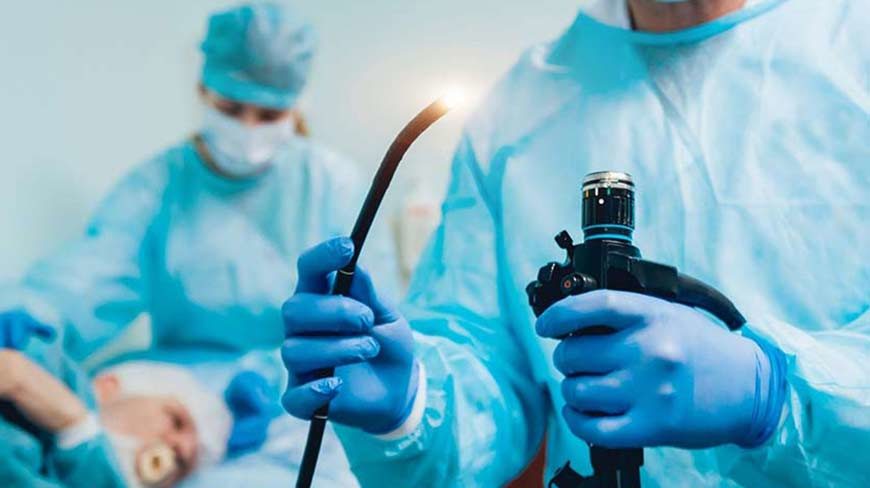At a Certain Age, Everyone Should See a Gastroenterologist
If you’re unsure about whether you should see a gastroenterologist, you’re not alone. There are a wide range of gastrointestinal conditions that require a gastroenterologist appointment to treat. But even if you are in good health, at a certain age, everyone should visit a gastroenterologist for a colonoscopy.
A colonoscopy is the gold-standard screening for colorectal cancer, which is the third most deadly cancer in the U.S. among men and women. A colonoscopy is a procedure during which a gastroenterologist uses a colonoscope to looks at your rectum and colon. A colonoscope is a flexible tube that has a camera and a tool for removing polyps, which are small growths that can turn into cancer.
Your gastroenterologist will insert the colonoscope and guide it to the end of the colon. Then they will slowly remove the colonoscope as they look for polyps. If your gastroenterologist finds a polyp, it will be painlessly removed and sent to a lab for examination.
A colonoscopy is the only cancer screening that can prevent and detect cancer. Though few are excited about it, the entire colonoscopy procedure is painless. Wondering when you need to start colorectal cancer screening? Here’s how to know.
Is it Time to Make Your Appointment?
You should see a gastroenterologist by 45. That’s the age that those who have an average risk of colorectal cancer should begin getting colonoscopies. After your initial colonoscopy, your gastroenterologist will recommend the frequency of follow-up colonoscopies based on their findings.
Prior to 2018, the American Cancer Society recommended that people begin colorectal cancer screening at 50. The American Cancer Society now recommends that people of average colorectal cancer risk begin getting colonoscopies at 45. This was partially in response to the growing cases of colorectal cancer among younger people.
Healthy people with a life expectancy of more than 10 years should continue regular colonoscopies through age 75.
For those who are 76 through 85, deciding to have a colonoscopy should be based on their preferences, life expectancy, health, and past screening history.
People over 85 should consult their physicians to determine if colonoscopies are necessary.
What’s Your Risk?
You’re considered average risk if you don’t have:
- A personal or family history of colorectal cancer
- A personal history of certain types of colon polyps
- A hereditary colorectal cancer syndrome, like familial adenomatous polyposis or Lynch syndrome
- A personal history of getting radiation to the abdomen or pelvic area to treat a prior cancer
Some people have an increased risk for colorectal cancer and may need to start colon cancer screening before 45. Higher risk people have:
- A personal or family history of colorectal cancer or certain types of polyps
- A personal history of inflammatory bowel disease
- A family history of a hereditary colorectal cancer syndrome, like familial adenomatous polyposis or Lynch syndrome
- A history of getting radiation to the abdomen or pelvic area to treat a prior cancer
If you think you’re at higher risk for colorectal cancer, talk to your gastroenterologist. If you’ve delayed testing, your gastroenterologist can help you get back on track.
Ready for your first colonoscopy or due for your next one? Don’t put it off. Schedule an appointment today.
Related:


